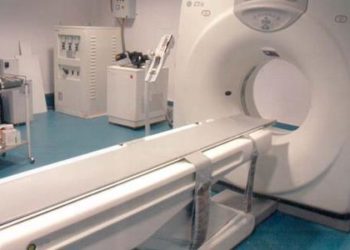Temporary interruption of endocrine therapy in women with endocrine-responsive breast cancer did not affect cancer outcomes
1. The 3-year incidence of breast cancer in the study group was 8.9% compared to 9.2% in the control group
2. At 3 years follow-up, the distant recurrence in the study group was 4.5% compared to 5.8% in the control group
Evidence Rating Level: 1 (Excellent)
Study Rundown: The preservation of fertility and the desire to pursue pregnancy is a concern for patients diagnosed with breast cancer, which is the most common cancer found in women 40 years old or younger. This study investigated the effect of a temporary interruption of endocrine therapy treatment of endocrine-responsive breast cancer in young women who desired pregnancy. The primary outcome of this study was the number of breast cancer events in the 3 years following an interruption, which included recurrence of invasive disease at an ipsilateral, contralateral, or locoregional site, or distant recurrence of disease. Secondary outcomes of this study included pregnancy and birth outcomes. The incidence of breast cancer in the study group at 3 years was 8.9% compared to 9.2% in the control group. The 3-year distant recurrence in the study group was 4.5% as compared to 5.8% in the control group. Of the 497 patients who reported pregnancy-specific data, 74% achieved pregnancy during the trial. Limitations of this study include that the follow-up period was relatively short at a median of 3.4 years. The safety of pausing endocrine therapy in patients with endocrine-responsive breast cancer for the pursuit of pregnancy will be better elucidated after a longer follow-up period, as indicated by the study protocol. Additionally, the findings in this study should be cautiously applied to women with more advanced disease or larger tumours, as the results could be biased by a “health mother effect” whereby the recruitment of patients into the study was more likely to include women who were healthier and more likely to become pregnant. Further, the analysis protocols, using bootstrap-matching methods, may not have completely controlled for imbalances between the groups. Overall, the results from this study suggest that breast cancer outcomes are no worse in cohorts with endocrine-responsive breast cancer who paused their endocrine therapy to pursue pregnancy.
Click to read the study in the NEJM
Click to read an accompanying editorial in the NEJM
Relevant Reading: Pregnancy after breast cancer: a systematic review and meta-analysis
In-Depth [prospective cohort]: This prospective, single-group trial was conducted using international data from multiple centres. This study analyzed data from 516 female patients aged 42 or younger who desired pregnancy and who had been treated with adjuvant endocrine therapy for stage I, II, or III hormone receptor-positive breast cancer. A control group of 1,499 patients was established. Of the study subjects, 516 were included in the primary efficacy analysis population, while 497 were included in the secondary end-point population (those who reported data regarding pregnancy). Breast cancer incidence at 3 years was 8.9% (95% confidence interval (CI), 6.3-11.6), whereas the incidence in the control group was 9.2% (95% CI, 7.6-10.8); the absolute difference is -0.2 percentage points (95% CI, -3.1-2.8). The adjusted hazard ratio (HR) in the study group compared to control was 0.81 (95% CI, 0.57-1.15). The 3-year incidence of distant recurrence was 4.5% in the study group (95% CI, 2.7-6.4), whereas the outcome in the control group for the same metric was 5.8% (95% CI, 4.5-7.2). The absolute difference was -1.4 percentage points (95% CI, -3.5-1.0; HR, 0.70; 95% CI, 0.44-1.12). 74% of 497 study group patients who provided pregnancy data became pregnant during the trial, 43.3% of whom used assisted reproductive technology. The HR was 0.53 for a breast cancer event associated with pregnancy. The only factor that was significantly associated with a successful pregnancy was younger age: 85.7% of patients under 35 achieved pregnancy, whereas 76.0% between 35 and 39 did, and 52.7% of those between 40 and 42 became pregnant.
Image: PD
©2023 2 Minute Medicine, Inc. All rights reserved. No works may be reproduced without expressed written consent from 2 Minute Medicine, Inc. Inquire about licensing here. No article should be construed as medical advice and is not intended as such by the authors or by 2 Minute Medicine, Inc.









